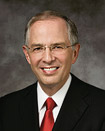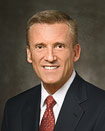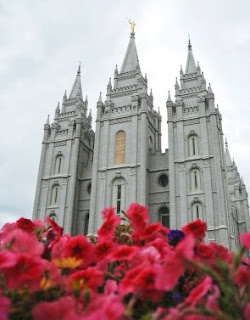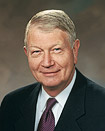The Transforming Power of Faith and Character, by Richard G. Scott
Of the Quorum of the Twelve Apostles
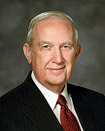
What is character? One may define it as moral or ethical strength, but how is it developed? More on that later.
Elder Scott reminds that "the exercise of faith is vital to Father in Heaven's plan of happiness." But what kind of faith is it important to exercise? As a young boy, I remember that every lesson on faith mentioned one of three things: seeds, lightbulbs, or sunrises.
It's important to note that faith that saves is not faith in a seed. . .

. . . nor is it faith in lightbulbs. . .

. . .and it's not even faith in sunrises.

Elder Scott echoed what I've since tried to emphasize every time I teach a lesson on faith: "True faith, faith unto salvation, is centered on the Lord Jesus Christ."

All this talk of faith may raise a question: Why does the title mention both faith and character?
In my previous post (link), I asked about looking to God for answers and only finding silence. I used Abraham, Noah, and Joseph Smith as examples, and suggested that it was their faith that sustained them in silence. Elder Scott continued on this theme:
Be thankful that sometimes God lets you struggle for a long time before that answer comes. That causes your faith to increase and your character to grow. . . Faith and character are intimately related.
If faith is a "principle of action and of power," as Joseph Smith taught, then how is it related to the moral and ethical strength we call character?
Your exercise of faith in true principles builds character; fortified character expands your capacity to exercise more faith. As a result, your capacity and confidence to conquer the trials of life is enhanced. The more your character is fortified, the more enabled you are to benefit from exercising the power of faith. You will discover how faith and character interact to strengthen one another. Character is woven patiently from threads of applied principle, doctrine, and obedience.
I enjoyed this chain of faith and character.

Considering that we have faith in Jesus Christ and want to become like Him, and that we wish to have stronger character to face with courage the myriad challenges that will come our way, the way to find this success is given in a single sentence by Elder Scott:
We become what we want to be by consistently being what we want to become each day.
It seems, then, that if we want to be pillars of faith and righteous character, then we should each day exercise faith, which will, in time, develop us into individuals of the character we desire!
Will it be easy? Of course not; however, Elder Scott has some concluding words of encouragement:
If you have determined to live righteously, don’t become discouraged. Life may seem difficult now, but hold on tightly to that iron rod of truth. You are making better progress than you realize. Your struggles are defining character, discipline, and confidence in the promises of your Father in Heaven and the Savior as you consistently obey Their commandments.
